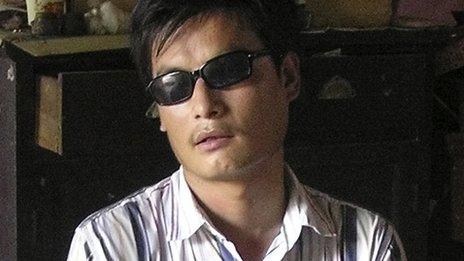Julian Assange: UK seeks diplomacy with Ecuador
- Published
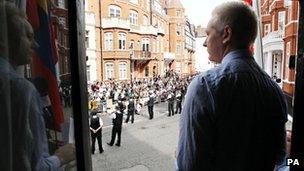
Mr Assange made his first public statement since entering the embassy on Sunday
The UK has insisted it will not grant Julian Assange "safe passage" to Ecuador as it seeks a diplomatic solution to him being given asylum.
Downing Street said the government was obliged to extradite Mr Assange to Sweden where he faces questioning over sex assault claims, which he denies.
The Wikileaks founder has been staying at Ecuador's London Embassy since June.
South American nations have pledged support for Ecuador after the UK said it could legally enter the building.
The Supreme Court in May dismissed Mr Assange's bid to reopen his appeal against extradition and gave him a two-week grace period before extradition proceedings could start.
"We hope that we can reach a diplomatic solution and we are doing what we can to achieve that," Prime Minister David Cameron's official spokesman said.
"Under our law, having exhausted all the options of appeal, we are obliged to extradite him to Sweden. It is our intention to carry out that obligation.
"We will continue talking to the Ecuadorean government and others to try to find a diplomatic solution."
South American unity
Last week Ecuador described as a "threat" a UK letter that drew attention to the Diplomatic and Consular Premises Act 1987, which could allow it to potentially lift the embassy's diplomatic status to allow police to enter the building to arrest Mr Assange for breaching his bail terms.
The Foreign Office later said the letter had been sent to clarify "all aspects of British law that Ecuador should be aware of".
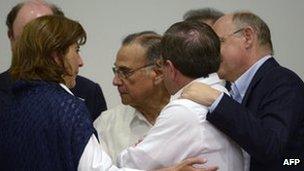
The South American foreign ministers expressed support for Ecuador
It has said it will follow its obligations, under the Extradition Act, to arrest Mr Assange if he leaves the embassy.
Meanwhile, a meeting of the Union of South American Nations agreed a document which said it supported the country "in the face of the threat" to its London embassy.
After Ecuador's Foreign Minister Ricardo Patino finished reading the final declaration from the Union of South American Nations (Unasur) summit, he joined hands with his fellow foreign ministers from across South America and raised them aloft.
Ecuador's President Rafael Correa has suggested Mr Assange could co-operate with Sweden if assurances are given that there would be no extradition to a third country.
On Sunday, Mr Assange, 41, used his first public statement since entering the embassy to claim asylum - delivered from a balcony - to call on the US to stop its "war on whistle-blowers".
The US is carrying out an investigation into Wikileaks, which has published a mass of leaked diplomatic cables, embarrassing several governments and international businesses.
In 2010, the two female Wikileaks supporters accused Mr Assange, an Australian citizen, of committing sexual offences against them while he was in Stockholm to give a lecture. He claims the sex was consensual and the allegations are politically motivated.
- Published20 August 2012
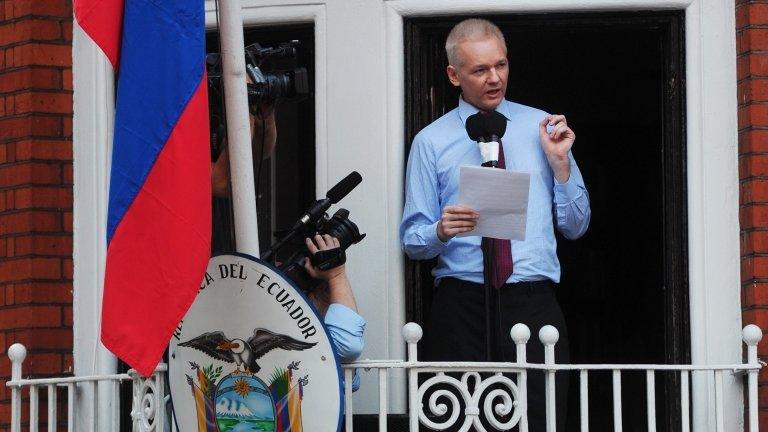
- Published20 August 2012
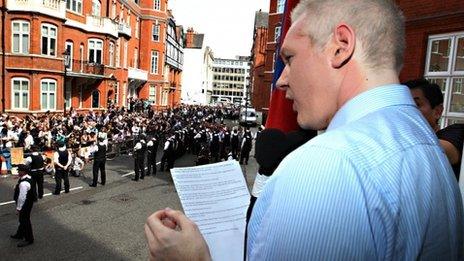
- Published25 June 2024
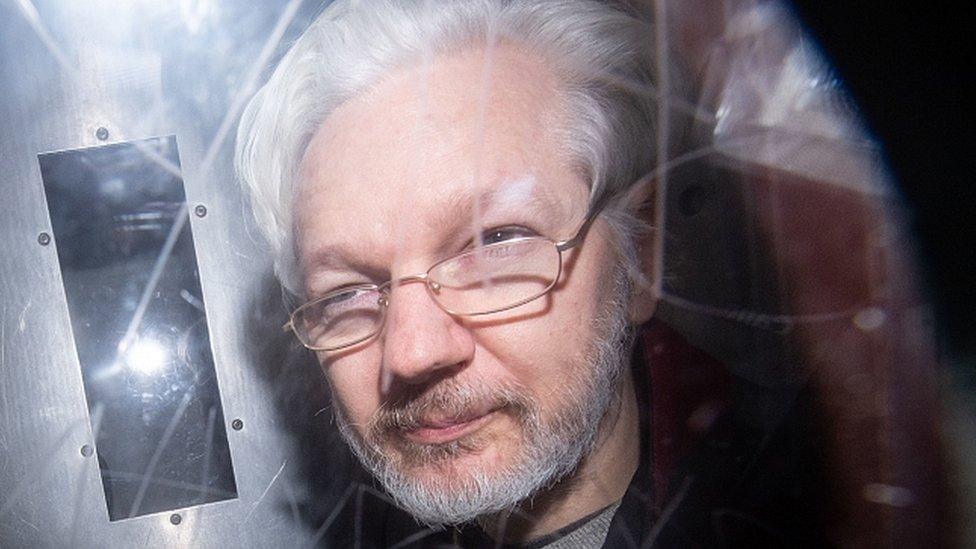
- Published16 August 2012
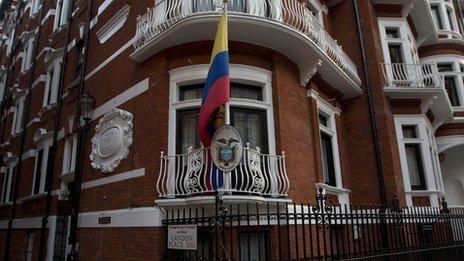
- Published18 August 2012
_afp.jpg)
- Published2 May 2012
